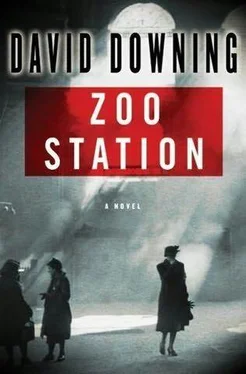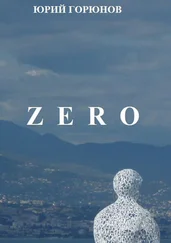David Downing - Zero Station
Здесь есть возможность читать онлайн «David Downing - Zero Station» весь текст электронной книги совершенно бесплатно (целиком полную версию без сокращений). В некоторых случаях можно слушать аудио, скачать через торрент в формате fb2 и присутствует краткое содержание. Жанр: Шпионский детектив, на английском языке. Описание произведения, (предисловие) а так же отзывы посетителей доступны на портале библиотеки ЛибКат.
- Название:Zero Station
- Автор:
- Жанр:
- Год:неизвестен
- ISBN:нет данных
- Рейтинг книги:5 / 5. Голосов: 1
-
Избранное:Добавить в избранное
- Отзывы:
-
Ваша оценка:
- 100
- 1
- 2
- 3
- 4
- 5
Zero Station: краткое содержание, описание и аннотация
Предлагаем к чтению аннотацию, описание, краткое содержание или предисловие (зависит от того, что написал сам автор книги «Zero Station»). Если вы не нашли необходимую информацию о книге — напишите в комментариях, мы постараемся отыскать её.
Zero Station — читать онлайн бесплатно полную книгу (весь текст) целиком
Ниже представлен текст книги, разбитый по страницам. Система сохранения места последней прочитанной страницы, позволяет с удобством читать онлайн бесплатно книгу «Zero Station», без необходимости каждый раз заново искать на чём Вы остановились. Поставьте закладку, и сможете в любой момент перейти на страницу, на которой закончили чтение.
Интервал:
Закладка:
That surprised the MI6 man. “How on earth do you expect us to get you one of those?”
“I’m sure you’ll have no trouble if you set your mind to it. I do have an American mother, you know, so it’s hardly a huge stretch.”
“Why do you want one?”
“I’d have thought that was obvious. If there’s a war in Europe, anyone with a British passport will be sent home. With an American passport I can stay.”
Trelawney-Smythe puffed at his pipe, digesting the idea, and Russell watched the slight widening of the eyes as he appreciated the possibilities-MI 6 would have a man in Germany once the war started!
Not that Russell had any intention of doing anything more for them, but they weren’t to know that.
“In the next two weeks, you said.”
“Yes. But I want the visa for Eva Wiesner by Monday. That should give her time to arrange her exit visa, and she can travel with her daughters on Thursday. There’s no hurry about the passport,” he added. “So long as I have it before a war breaks out.”
“You must like this family,” Trelawney-Smythe said, sounding almost human.
“I do. The girls have only just lost their father, and there’s no good reason why they should lose their mother as well. She left the communists twenty years ago, for God’s sake. She’s not going to start a revolution in Golders Green.”
“I hope not,” Trelawney-Smythe said wryly. “All right. I can get her a visa by Monday. The passport… I can’t promise anything-the Yanks dig their heels in about the silliest things-but we’ll do our best. You weren’t born in America, were you?”
“I was born in mid-Atlantic, if that helps. But on a British ship.”
“Probably not, then.” He was sounding almost chummy now. “If you come in on Monday morning I’ll have the visa for you.”
“I’ll see you then,” Russell said, resisting the temptation to be churlish. On his way out he noticed that the reading room was empty, and took time to consult the Embassy atlas. Gцrlitz was about two hundred kilometers southeast of Berlin, and about twenty from the Czech border. There were direct trains from Berlin, but they took most of the day and were probably checked as they neared the border area. If Albert got safely through the ticket barrier at this end he’d probably be picked up at the other. Russell was going to have to take him in the car.
There were two obvious routes: He could stick to the old road or take the Silesian autobahn to just south of Kottbus, and join it there. He liked the idea of escaping Hitler’s Germany by autobahn, but the old road, for reasons he couldn’t explain, felt safer.
So, two hundred kilometers-say, three hours. Stick in an extra half-hour in case he had a puncture. If the car broke down they were sunk, but spending more than a few minutes in Gцrlitz, with Albert eye-wrestling anyone in uniform, seemed like an excellent way of committing suicide. When it came down to it, the car seemed worthier of trust than Albert’s temperament.
Russell walked out to Unter den Linden, climbed into the Hanomag and headed east. If only Albert didn’t look so damned Jewish! The boy could hardly wear a mask, though the lifelike Goebbels mask which one of the American correspondents had made for last year’s Halloween party would have been singularly appropriate. How could he hide the boy’s face? A cap over the eyes, perhaps. Collar turned up and the required blue scarf. A pair of glasses? None of it would help if Albert insisted on vibrating with rage.
And where was he going to pick him up? Not at the flat, that was for sure. Somewhere crowded? Only if it was somewhere a Jew didn’t stick out like a sore thumb, and places like that were thin on the ground. And the police would be looking for him-a Jew who knocked down a Gestapo officer with a table lamp was going to be high on their wanted list. They’d probably taken his picture in Sachsenhausen, and now all the Orpo stations would have copies hanging on their walls.
He parked the car in the Wiesners’ street and went up. The girls were out-“starting to say their goodbyes”-and their mother seemed exhausted by grief and worry. Russell told her about Albert’s Monday appointment in Gцrlitz, and his own role as chauffeur. “Tell him to join the visa queue outside the British Embassy between twelve and one-as one Jew among several hundred he should be invisible. I’ll walk by and collect him soon after one. He should be wearing workingmen’s clothes, nothing too smart. But a decent coat on top of them for the queue. People try to look their best for the Embassy.”
“I will tell him.”
“He must be there,” Russell insisted. “If he’s not, that’s it. We won’t be given a second chance.”
“He’ll be there.”
“And I think I’ve got you a visa. You should be able to go with the girls next Thursday.”
She looked as though she was having trouble believing it all. “We’ll know by then? About Albert?”
“We should,” he said. One way or the other.
Russell’s weekend followed the familiar pattern, but thoughts of the week ahead kept hitting him from behind, sending his stomach into momentary freefall. It wasn’t every week he delivered a fugitive from the Gestapo to the communist underground, went looking for military secrets in a dockside bar, and played some lethal form of hunt the parcel with the border police. The only time he could remember feeling like this was in the trenches, on those few occasions when he’d been ordered over the top. What had he gotten himself into?
Paul was too distracted himself to notice his father’s distraction. On Saturday they did the rounds of Berlin’s best toy shops, so that Paul could provide Russell with some useful hints on which birthday presents to surprise him with. On Sunday they went to another away game, at Viktoria Berlin’s stadium in Steglitz, and came away delighted with a fortunate draw. Paul was still full of the trip to London, and eager to know when they could visit his grandmother in New York. “Maybe this summer,” Russell said, surprising himself. But why not? The money was there.
Effi noticed. On Saturday evening they went to a comedy theatre revue involving friends of hers, and he twice needed prodding to join in the applause. An hour’s dancing in one of the halls off Alexanderplatz took his mind off everything else, but on the drive home he almost drove through a red light at Potsdamerplatz.
“What’s eating you?” she asked.
As they drove along the southern edge of the Tiergarten he gave her the whole story of his dealings with Shchepkin and Borskaya, ending with the request to take out the documents, and his realization that he could use the situation to help the Wiesners. “Seduced by my own cleverness,” he admitted. “And now I feel like digging myself a very deep hole and hiding in it.”
“Like a fox?”
“More like a rabbit.”
She took his right hand and squeezed it.
Glancing to his right, he could see the worry in her face. “I can’t back out now,” he said.
“Of course not. Why don’t we stop here?” she added.
He pulled up under the trees, and turned to face her.
“You couldn’t go on the way you were,” she said.
“What do you mean?”
She took his hand again. “You know what I mean,” she insisted.
And he did.
Monday was a rush. Effi insisted on coming to the Embassy with him-“everyone says I look Jewish, so they’ll think I’m his sister”-and then displayed her usual inability to be ready on time. Once Russell had finally gotten her to the car, he suddenly remembered, with another downward lurch of his stomach, that he’d forgotten to tell Eva Wiesner about the blue scarf. A ten-minute search for something suitable in the KaDeWe on Wittenbergerplatz made them five minutes late, a derailed tram in Potsdamerplatz five minutes more. Russell had a mental picture of a Gestapo officer walking along beside the queue, then suddenly stopping and pointing at Albert.
Читать дальшеИнтервал:
Закладка:
Похожие книги на «Zero Station»
Представляем Вашему вниманию похожие книги на «Zero Station» списком для выбора. Мы отобрали схожую по названию и смыслу литературу в надежде предоставить читателям больше вариантов отыскать новые, интересные, ещё непрочитанные произведения.
Обсуждение, отзывы о книге «Zero Station» и просто собственные мнения читателей. Оставьте ваши комментарии, напишите, что Вы думаете о произведении, его смысле или главных героях. Укажите что конкретно понравилось, а что нет, и почему Вы так считаете.












